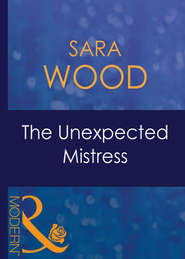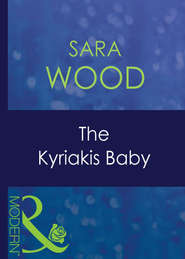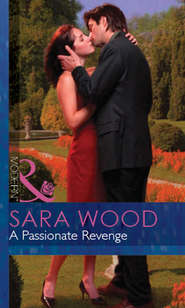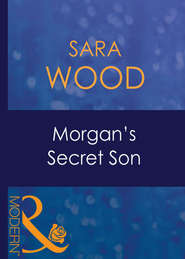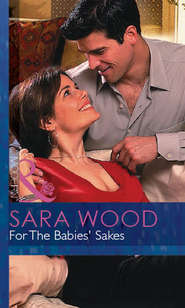По всем вопросам обращайтесь на: info@litportal.ru
(©) 2003-2025.
✖
Tangled Destinies
Автор
Год написания книги
2018
Настройки чтения
Размер шрифта
Высота строк
Поля
‘Here goes,’ she muttered, heading towards John and Lisa. Ignore István, she told herself. Think only of the wedding. But smiling was more difficult than she’d hoped.
‘Are you going to show me this hotel of yours or am I camping out here?’ she asked John jokingly in a rather stiff little voice that went with the rigid smile.
‘Sorry, I——’ began John.
‘You and István didn’t get on,’ sighed Lisa despondently, slumped rather inappropriately against a statue of Cupid. ‘I heard you arguing.’
Tanya looked at her anxiously. Now István was gone, the light had left Lisa’s face. ‘Good grief! He and I will always be at daggers drawn!’ she said lightly. ‘That doesn’t matter a scrap. Pretend he’s not here. I’m dying to hear all the arrangements. Can you take my luggage, John?’
Conscious of the need to reassure Lisa, to remind her friend that John was reliable and steady and loved her, she tucked her arm in Lisa’s, pushing her towards the hotel steps. John remained stony-faced as he stalked along beside them so she sought ways to break the deadlock between them and lift the funereal atmosphere.
‘It’s thrilling that you two are crazy about each other!’ she continued warmly. Was that overkill? she wondered. ‘All that gush in your letters, you old romantic! The lights on the Danube, the candlelit dinners…isn’t it just great that you’re marrying my kid bro?’
‘Great,’ said Lisa dutifully.
Tanya hid a wail of despair. She’d sounded less than overjoyed. As if…as if her mind was elsewhere. ‘So, what’s the plan? I thought I’d go to my room and unpack first,’ she continued, managing to sound quite cheerful. Poor John, she thought miserably. He looked ashen. She must act, act, act! ‘Then I’ll do us all a favour and get rid of the wretched You-Know-Who. I thought an acid bath might do the trick, John!’ she joked.
‘I’ll empty a few car batteries,’ he muttered, his eyes dark with worry.
Tanya tried to give a tinkle of laughter but it wasn’t too convincing. She knew instinctively that he and Lisa would argue again when they were alone. And somewhere in the hotel, with any luck, she’d be throwing crockery at the incorrigible István. Some family reunion, she thought morosely.
‘If I’m not camping under the stars, I suppose you’ve put me in some dark cellar!’ she said with painful brightness.
‘Got it in one. The best cellar we have, on the first floor. Lisa’s next door in the bridal-suite cellar,’ John jokingly answered, rallying himself with an effort and forcing a faint, brave smile.
‘Lovely,’ Tanya enthused, scanning the big windows above. A figure in white moved away quickly, as though the person didn’t want to be seen. Not István, someone smaller. Probably a curious maid, she thought dismissively.
And, as they walked up the steps with John trying for her sake to be normal and talking about the range of facilities at the castle hotel, Tanya saw that Lisa’s eyes were searching for something or someone and she knew who it must be.
István.
She quailed. He still dominated their lives, even in his absence. It was quite plain that Lisa felt his magnetism far too strongly for a woman on the brink of marrying someone else. Poor John! mourned Tanya. He’d adored Lisa from the very first and had resented any time that Lisa had spent with István. John had tried desperately to drag himself out of his elder brother’s giant shadow—without success. Who could? Shadows were elusive, impossible to pin down. Impossible to hurt, too.
‘…here in the old hall,’ John was saying with quiet pride.
Guiltily, she pulled herself together and looked around the high-ceilinged room, genuinely delighted to see that it looked like the interior of an exquisite eighteenth-century mansion, with none of the usual trappings of a hotel.
‘John!’ she cried warmly, admiring the mirrored walls. ‘I’m quite staggered! How clever of you to get a job here! It’s absolutely beautiful—especially the flower displays and romantic garlands. And look at this furniture! By golly,’ she added in awe, ‘it’s all antiques!’
‘Every stick,’ nodded John. ‘It was all inherited by the countess, my boss.’
‘I’m surprised this stuff wasn’t looted and transported back to Moscow during the Communist Occupation,’ mused Tanya.
Her brother smiled absently. ‘Perhaps she hid it. She’s a very astute and nice lady. You’ll like her when we get together to talk about the riding school. She lives on the estate.’ His smile turned to a frown. Lisa was rather obviously searching for István. ‘I’ll get the key and sign you in,’ he ground out tightly, reining in his temper.
Tanya waited till he’d reached an antique desk before she took the bull by the horns and rounded on her miserable-looking friend. ‘Lisa, I don’t know what you’re doing, but you’re hurting John!’ she whispered in exasperation. ‘Can’t you ignore István even for one moment?’
‘Can you?’ retorted Lisa.
‘No-yes!’ Tanya heaved an impatient sigh. ‘You’re confusing me,’ she muttered. ‘How long’s István been here?’
‘So you are interested in me,’ came his satin-smooth voice just behind her and suddenly there were two dozen Istváns in the hall with them, dark, menacing and devilishly handsome from every angle.
‘Only as a porter,’ said Tanya crisply, annoyed that Lisa had abandoned her and crept away to John’s side—and because her pulses had inexplicably leapt into life. The reason for that was so unthinkable that she dismissed it out of hand.
‘A porter? Doesn’t seem to be one around. Must be a coffee-break,’ said István, unperturbed by her put-down. ‘How cool you are. What control!’ he said in admiration. ‘Don’t you have one or two burning questions to ask me?’
Millions, she thought—but not with John and Lisa around. Ignoring him then, she pretended to be surveying the lovely wedding swags and garlands that hung everywhere.
‘Admiring the orchids?’ he enquired softly.
The flowers registered more fully on her conscious mind. Her head jerked up. ‘Orchids!’ she exclaimed sadly.
An ache weighed down her heart. Poignant memories were associated with the bouquet of white orchids that István had sent for their mother’s funeral. Her father had thrown the flowers in the dustbin and so István’s tribute had never taken their rightful place on her mother’s coffin. That fact had deeply distressed her.
‘Ester’s favourite flowers,’ ruminated István quietly, apparently unaware of the drama inside her head.
‘I know,’ she said huskily. He’d been the only one to remember. He’d always given her mother orchids on her birthday. She’d once said that they reminded her of the ones that had been grown in the hothouse close to her old home in Hungary.
István touched her shoulder to regain her attention because she’d averted her face from his. No way did she want him to know how close she was to tears.
‘Tell me something,’ he said gently. ‘What do you think of Kastély Huszár? Intimidating? Alien? Not to your taste, perhaps?’
Glad he’d turned to more mundane things, she eyed him scornfully. If he was trying to play down the attractions of John’s hotel, he’d find her unresponsive. ‘Friendly, welcoming and quite the loveliest place I’ve ever seen,’ she answered, warmth seeping into her tone. ‘Hasn’t John done well?’
‘Oh, he’s landed himself a good job all right,’ admitted István.
‘I’m glad you realise it,’ she said drily.
‘I’m glad you do. I want you to be quite aware of his good fortune.’
Her forehead wrinkled with a puzzled frown. ‘I imagine all these deep, meaningful remarks are leading somewhere?’
‘I hope so,’ he said silkily, his sensual mouth quivering with amusement. ‘I sincerely do hope so.’
It was as if he wanted her to find him seductive, she thought dazedly. And blinked. Alarmed, she said the first thing that came into her head. ‘I do think he’s organised the foyer well,’ she burbled. ‘A shiny reception desk with pigeon-holes for keys and people in uniform and badges would have been out of place. With those books and hats and things scattered about, it’s like someone’s home.’ Mercifully she ran out of breath.
‘Home? Not like our home used to be, I hope. There’ll be tears before bedtime, if so,’ he said enigmatically.
Tanya stiffened. ‘What precisely do you mean by that?’ she demanded, her eyes dark and wary.
‘I’m talking from my own point of view, of course,’ he replied smoothly. ‘I found the family remarkably divided.’
‘You left the family divided,’ she corrected tartly.
‘I’m flattered you imagine it was all my own work,’ he drawled sardonically. ‘Of course,’ he reflected, ‘you were incapable of really seeing anyone’s faults. Everyone loved you because you accepted them, faults and all, and were more concerned for others than yourself. You were the mediator.’
‘I was?’ she said, surprised. It hadn’t been a role she’d been aware of.






